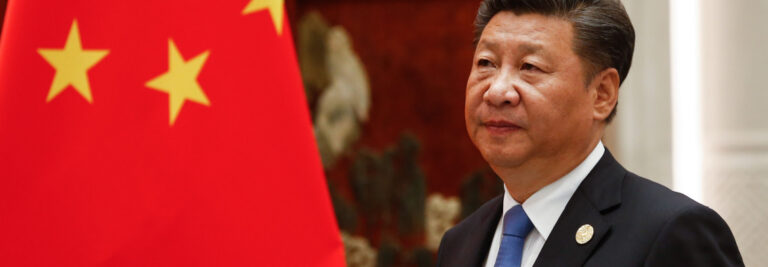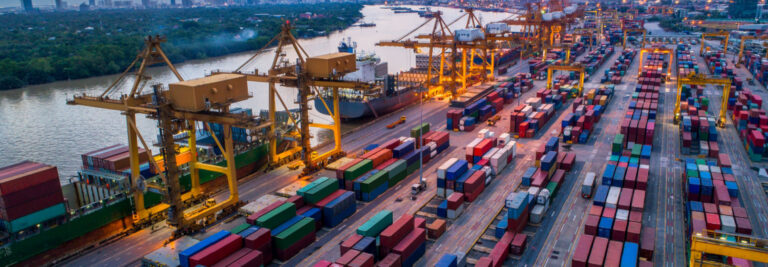The founder of the Nationalist Party (Kuomintang) and Republic of China (ROC), Sun Yat-sen (孫中山; b. 1866), revered in Taiwan as the “Father of the Country” (國父) would have turned 150 on November 12. Every year in Taipei and in Beijing—the capitals of Taiwan and the People’s Republic of China (PRC), respectively—political leaders on both sides of the Taiwan Strait organize events commemorating Sun’s legacy around his birthday. This year was no exception. In an unprecedented move, however, Beijing rolled out the red carpet for the “revolutionary hero” in a high-powered ceremony attended by senior Chinese Communist Party (CCP) cadres, which also included participation by retired senior military officers from Taiwan.
Chinese Communist Party (CCP) leaders view Sun not as the “Father of the Country” but as a leader who united the Chinese people in extraordinary times to resist and overthrow imperialism. Unlike previous events commemorating Sun’s life organized at the central level that were hosted by the advisory Chinese People’s Political Consultative Conference (CPPCC), and customarily held at the Zhongshan Hall in Beijing’s Zhongshan Park (e.g. birthday years 149, 148, 147, 146, 145), this year’s magisterial ceremony took place at the Great Hall of the People (人民大會堂)—a venue reserved for high-level legislative and ceremonial activities organized by the party-state.
The official ceremony, held on November 11, was attended by six out of seven members of the powerful CCP Politburo Standing Committee: Xi Jinping (習近平), Li Keqiang (李克強), Yu Zhengsheng (俞正聲), Liu Yunshan (劉云山), Wang Qishan (王岐山), and Zhang Gaoli (張高麗). Leaders waxed lyrical about Sun’s legacy and hoisted him up as a symbol of Chinese unity. In a speech that was around 6,100 characters long, CCP General Secretary and PRC President Xi Jinping boldly proclaimed that “CCP members are the firmest supporters, most loyal collaborators, and most faithful successors of Mr. Sun Yat-sen’s revolutionary undertakings” (中國共產黨人是孫中山先生革命事業最堅定的支持者、最忠誠的合作者、最忠實的繼承者). Not hiding the purpose of his speech, Xi again re-emphasized that the so-called “1992 Consensus” must be the political foundation for cross-Strait dialogue, and furthermore asserted that, “we [CCP] will never allow anyone, any organization, any party to split off any tract of territory from China anytime, or in any way” (任何組織、任何政黨、在任何時候、以任何形式、把任何一塊中國領土從中國分裂出去).
The CCP’s recognition of Sun’s role in Chinese history does not represent anything dramatically groundbreaking per se—he was always respected as an important revolutionary figure. Yet, the concerted use of Sun’s legacy as a symbol to promote unification at the state level reflects a deepening of the CCP’s effort to reframe the KMT in its political narrative, underway since at least 2010. The elevated status of what had largely been a small yet formal event to a high-powered official rite unsurprisingly coincides with the election of a new government on Taiwan and has corresponded with an uptick in Chinese political warfare activities targeting retired Taiwanese military officers in Taiwan and also in the United States. Interestingly, this year’s politically charged ceremony was reportedly attended by over 32 retired military officers from the Taiwan (ROC) military, including former Deputy Commander of the ROC Army Lieutenant General Wu Si-huai (吳斯懷).
Lieutenant General Wu (b. 1952) served as Deputy Commander of the ROC Army from January to August 2011. After he retired from military service in 2011, he served as the Deputy Secretary General of Taiwan’s Red Cross Society (中華民國紅十字會) and vice president of the ROC Army Academy Alumni Association (陸軍官校校友總會副會長). Wu has been a regular participant in an annual cross-Strait dialogue called the “Zhongshan, Whampoa, and Cross-Strait Friendship” dialogue (「中山‧黃埔‧兩岸情」論壇), started in 2010 by the PRC’s Revolutionary Committee of the Kuomintang Central Committee (中國國民黨革命委員會) and the Whampoa Military Academy Alumni Association (黃埔軍校同學會). The first of these annual events was held in Taipei in 2010, during the previous Ma administration.
Wu reportedly attended previous dialogues that were held in Wuhan and Hong Kong in 2013 and 2014, respectively. This year’s annual conclave was held in Beijing on November 10, just a day before the official ceremony. Around 50 retired military officers from Taiwan reportedly attended the dialogue. Notable participants reportedly included Taiwan’s explicitly pro-unification New Revolutionary Alliance (新同盟會) President and retired General Hsu Li-nong (許歷農), former Presidential Military Strategy Advisor and retired Lieutenant General Cao Wen-sheng (曹文生), former Deputy Defense Minister and retired Lieutenant General Wang Wen-xie (王文燮), former Air Force Commander and Lieutenant General Shen Guo-zhen (沈國禎), former head of the National Defense University and retired Lieutenant General Xia Yingzhou (夏瀛洲), former Commander of the Army and retired Lieutenant General Chen Ting-chong (陳廷寵), former Presidential Military Strategy Advisor and retired Lieutenant General Zhou Zhong-nan (周仲南), and Taiwan New Party Chairman Yu Muming (鬱慕明), among others. Participants from the PRC reportedly included Revolutionary Committee Vice Chairman Liu Fan (劉凡) , CCP Central Committee’s United Front Work Department Deputy Director Lin Zhimin (林智敏), State Council’s Taiwan Affairs Office Deputy Director Long Mingbiao (龍明彪), and Revolutionary Committee Vice Chairman Zheng Jianbang (鄭建邦), among others.
In response to interrogatories at the Legislative Yuan—Taiwan’s parliament—about the senior retired military officers attending official functions in the PRC, the Deputy Director of the National Security Bureau’s (NSB) Third Department, which is responsible for security intelligence covering the Taiwan area, Lai Yun-cheng (賴蘊誠) reported that the delegation included 32 retired senior military officers, which included 5 generals, 11 lieutenant generals, and 16 major generals. The generals who attended the ceremony reportedly included Hsu Li-nong, Cao Wen-sheng, Wang Wen-xie, Shen Guo-zhen , and Zhou Zhong-nan (although there are conflicting accounts about who actually attended the official ceremony).
At the National Sun Yat-sen Memorial Hall in Taipei—senior leaders of Taiwan’s KMT attended an exhibit commemorating the life of the founder of the KMT and ROC. When asked by media for a response to Xi’s statement that the CCP is the “most faithful successors of Mr. Sun Yat-sen’s revolutionary undertakings,” KMT Chairwoman Hung Hsiu-chu (洪秀柱) scoffed: “There is no question that the KMT is the true heir of Sun.” The KMT Chairwoman recently met with General Secretary Xi during a visit to the PRC. Former Taiwan President Ma Ying-jeou (馬英九), who also attended the exhibit, added: “It is very different in that the CCP sees Sun as a ‘forerunner of the democratic revolution’ while we [Taiwan] regard Sun as the founder of the ROC.”
While the government channels between Taipei and Beijing remain cool after the CCP froze communications with the Democratic Progressive Party administration, Beijing appears to be pulling out all the stops to utilize retired military officers, pro-unification factions within the KMT, and other pro-China groups as its primary interlocutors with Taiwan. Whether this strategy will work to win the hearts and mind of Taiwanese people remains to be seen. In light of Taiwan’s presidential election, in which voters on the island voiced their concerns over the pace and scope of relations with the PRC, this strategy will likely gain little traction or perhaps even backfire.
The main point: The elevated status of Sun Yat-sen’s legacy as a symbol to promote unification at the state-level reflects a deepening of CCP’s effort to reframe the KMT in its political narrative. In particular, the use of Sun as a symbol for national unification unsurprisingly coincides with the election of a new government on Taiwan that has corresponded with an uptick in political warfare activities.




